Communiqué of APAY Executive Committee Meeting
Last Updated (Thursday, 09 July 2020 17:09)
Communiqué
Asia and Pacific Alliance of YMCAs
Executive Committee Meeting
2–3 July 2020
(Online meeting)
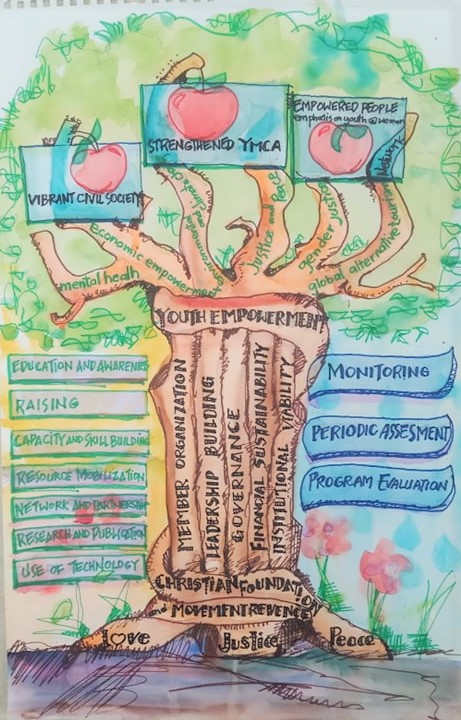 |
| ↑ QPP Tree drawn collectively at the LQR meeting in Taipei, last December |
The Asia and Pacific Alliance of YMCAs (APAY) held its annual Executive Committee Meeting from 2nd-3rd July 2020. Due to travel restrictions caused by the COVID-19 pandemic, APAY held its ECM 2020 online via Zoom for two hours, from 3:00-5:00 pm (HKT)each day on 2nd and 3rd July 2020. One hundred four (104) registered delegates and representatives from 22 movements in the Asia-Pacific region attended the meeting.
Prof. Chen Chin-Seng, President of APAY, presided the meeting and assisted by Mr. Nam Boo Won, General Secretary of APAY. Special guests included former APAY President Chim Hou Yan and World Alliance of YMCAs Secretary-General, Mr. Carlos Sanvee. Fraternal messages were received from SG Carlos Sanvee, Mr. Tom Valentine, Vice President, Y-USA International Group, IPE Dr. Kim Sang Chae from Y’s Men International, and AP Asia Pacific Area, Mr. David Lua.
Weighed down by the COVID-19 pandemic, APAY's Executive Committee is meeting at a very challenging and trying time in Asia, the Pacific, and around the world. Apart from health concerns, many YMCAs are struggling economically to survive due to the forced lockdowns and cancellation of programs and services. This ECM, too, had to be postponed from the original schedule in March and reorganized as an online meeting in July.
Within these contexts, the meeting started with a Mission Review Session with a view to understanding the social relevance of the YMCAs.
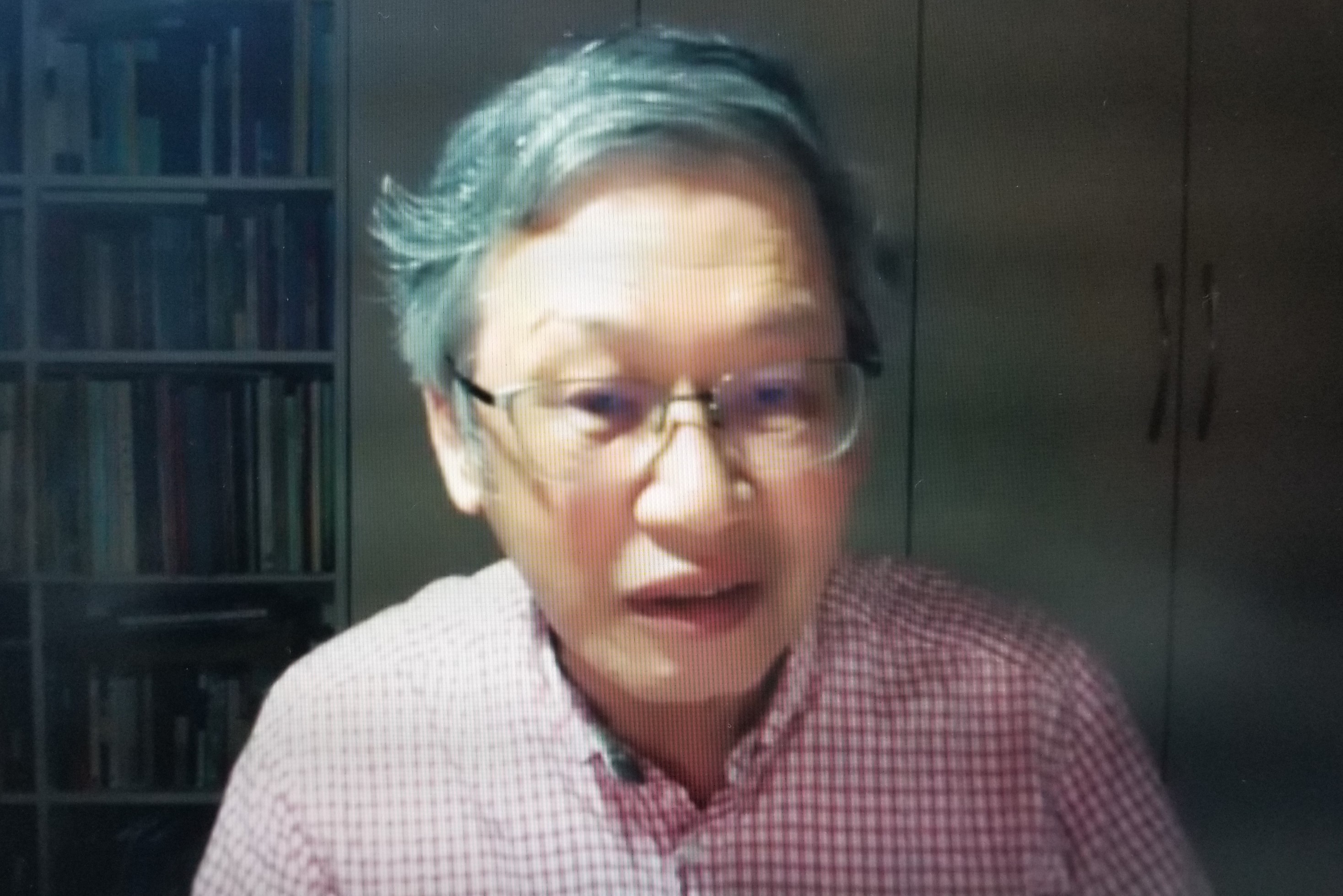 |
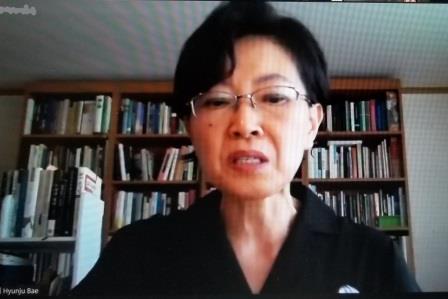 |
| ↑ President Prof. Chen Chin-Seng chairing the ECM | ↑ Rev. Dr. Hyunju Bae presenting her biblical reflection |
Morning Devotions and Mission Review
The morning devotions and reflections focused on the themes of the social relevance of the YMCAs amid the COVID-19 pandemic. The Mission Review Session on the theme “Post-COVID-19 World and YMCA Response” became part of the Opening Worship Devotion on the first day to serve as the message. Dr. Hyunju Bae, a Central Committee member of the World Council of Churches & Executive Board member of NCY-Korea, and Mr. Carlos Sanvee, Secretary-General of the World Alliance of YMCAs reflected on the above theme.
Dr. Hyunju Bae pointed out that civil societies such as YMCAs are challenged to speak the truth to power and engage in good governance. YMCA must be a guardian of and advocate for democracy and work for a wider “earth democracy.” It should be a platform for a “stereo-advocacy,” encompassing various advocacies girded towards durable and holistic peace. The 20th General Assembly’s mandate demands that YMCA programs be aligned and grounded on the principles of Jesus being the way, the truth, and the life. YMCAs must not cringe in challenging the empires. National YMCAs and APAY should challenge their respective countries to “engage in a campaign to abolish nuclear weapons,” by signing and ratifying the Treaty on the Prohibition of Nuclear Weapons. APAY must take the prophetic imagination to make the world of peace and human security. APAY must be a harbinger of hope and peace in the region and the world.
Mr. Carlos Sanvee outlined how the outbreak of COVID-19 has presented unprecedented challenges to the YMCAs all over the world and the global village as a whole. It has exposed to our collective consciousness what has been already there for a long time as grave and accumulated problems for human and earth communities. Our neo-liberal capitalistic economy has been obsessed with maximizing the short-term profit even at the expense of climate change. This flaw of its short-sightedness and tunnel vision is being painfully demonstrated now. The face of the Post-COVID-19 world will depend on our response. The only sensible choice is to learn the lessons from our collective experiences, ripen them into a great awakening, and let them guide us to continue to transform our consciousness, lifestyle, and society with a comprehensive long-term perspective.
During the Worship Service on the second day, Dr. Bart Shaha shared his pre-recorded reflection on “COVID-19 – A Clarion Call for Urgent Action on Climate Change.” The reflection was based on two passages from the Bible, namely: Isaiah 41: 1, 5, and 10; Mark 4:35-41. Dr. Shaha challenged us to fathom what COVID-19 is trying to convey to us. He asked us all to reflect on the questions -- how did we come to this vulnerable stage? How is this experience of vulnerability transforming us now? He hopes that these sprouting of new consciousness will lead us, human beings, towards envisioning new systems and processes of how we organize and conduct our lives in the future in terms of politics, science, and economics, taking into account our learning and mistakes of the past.
The new Quadrennial Program Plan (QPP) 2020~2023
The main thrust of the Quadrennial Program Plan (QPP) of APAY is to empower people, especially the youth, to be servant-leaders and responsible citizens in YMCAs and societies. They should be able to respond to social realities and transform their communities through creative and innovative approaches. The QPP 2020-2023 was the outcome of a collective, participatory process of deliberations during the “YMCA Leaders’ Quadrennial Roundtable” held at Taipei YMCA in December 2019. This QPP translates the Mandates of the 20th General Assembly into a concrete action plan of the APAY for implementation. The Quadrennial Vision of the APAY is “a strengthened YMCA and vibrant civil society that is empowered with and by youth to address social inequalities and injustices faced by vulnerable groups in societies through the creation of safe spaces and development of responsible leadership and governance that is anchored on Christian ideals of love, justice, and peace.”
The QPP 2020-2023 goals are the following:
- To strengthen the YMCAs in the Asia and Pacific through capacity building and empowerment related to leadership and governance, partnership and networking, and skills development training
- To understand and respond meaningfully to social issues that are relevant to the movement to build a vibrant civil society and social transformation
- To empower people, especially the youth and women to build their full potentials at all levels.
The above goals will be achieved through the implementation of the eight (8) Program Areas: Christian Foundation and Movement Relevancy; Environment and Climate Change (through GATN and Green Ambassadors Training); Justice and Peace; Economic Empowerment (through GATN); Youth Empowerment; Mental Health; Gender Justice; Disaster Risk Management. As a product of the collective effort, these QPP goals will be our collective quest, task, and legacy. Various committees of the APAY have deliberated on their roles and responsibilities with regard to the QPP for the coming year.
The Executive Committee during the session has accepted the 2019 Audited Financial Report. However, anticipating the reduced fair share due to the impact of COVID-19, the Finance Committee presented a revised frugal budget for 2020. The Executive Committee has graciously approved the budget for 2020 with some comments and suggestions.
The recent travel restrictions due to the COVID19 pandemic have prevented us from holding face-to-face meetings. Thus, APAY resorted to alternative means like holding all statutory meetings online. Adapting to new procedures resulting from COVID-19, the Constitution committee proposed that the By-laws be amended to provide for validation of these virtual meetings.
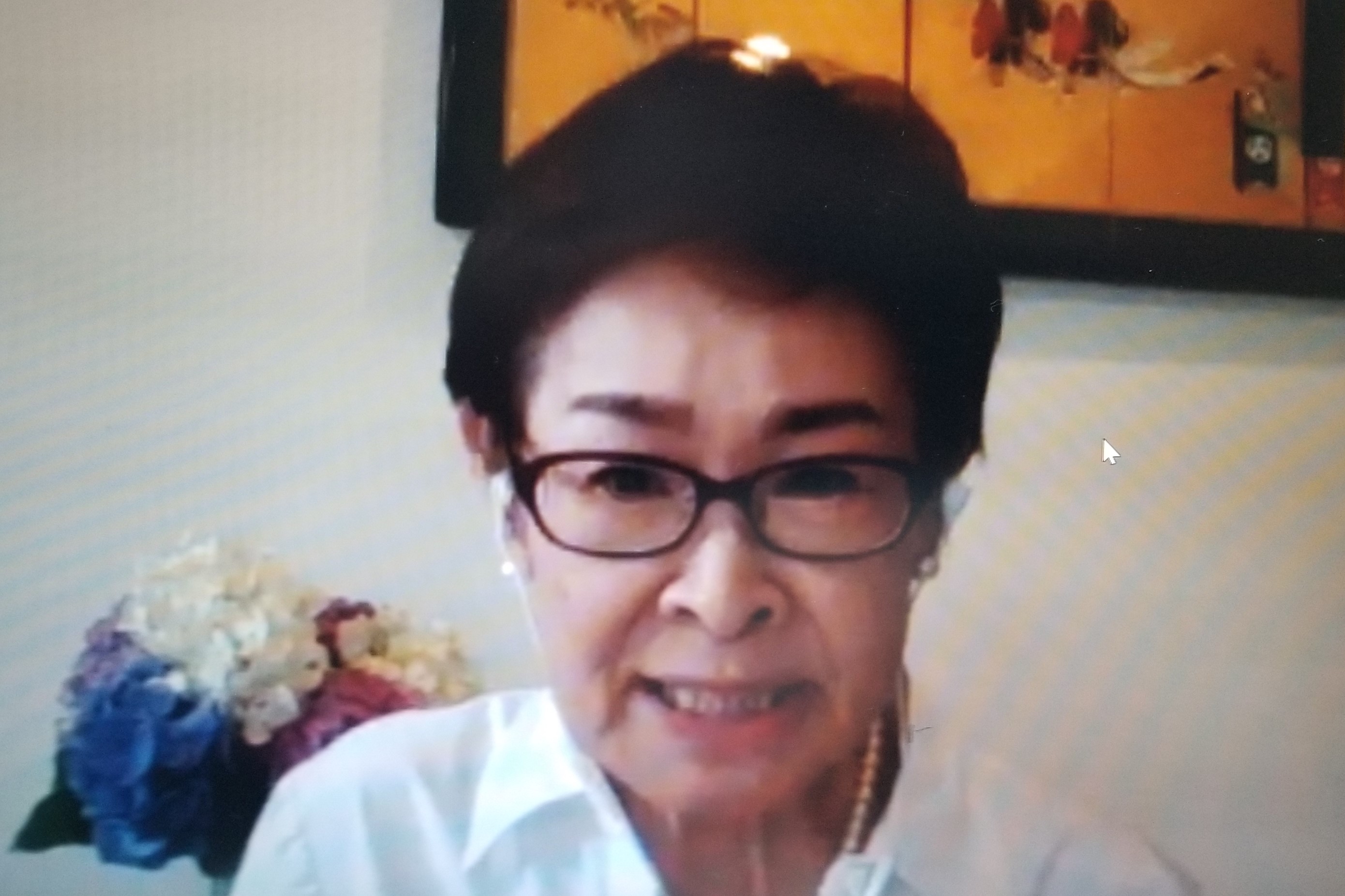 |
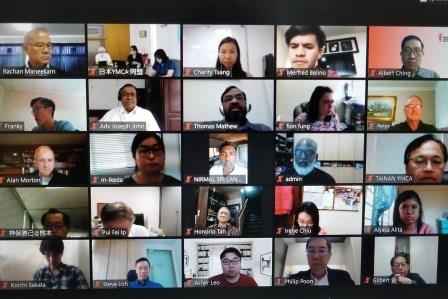 |
| ↑ Ms. Nagako Okado, Board member of APAY, facilitating the devotion | ↑ ECM participants via Zoom |
Conclusion
The Executive Committee Meeting concluded with a call for the YMCAs to remain relevant at this Kairos time of the COVID-19 pandemic. The YMCAs are urged to respond to the Challenge 21 and our Assembly theme “Living Together within Nature on a Path to Peace.” As a faith-based movement, we need to anchor our actions with compassion and humility. Our motto “To serve and not to be served” will lead us to be in solidarity with all peoples, and to help shape the post-COVID-19 society that we want.
~ Drafted by Beng Seng Chan, GATN Coordinator and adopted by the ECM on 3rd July 2020





